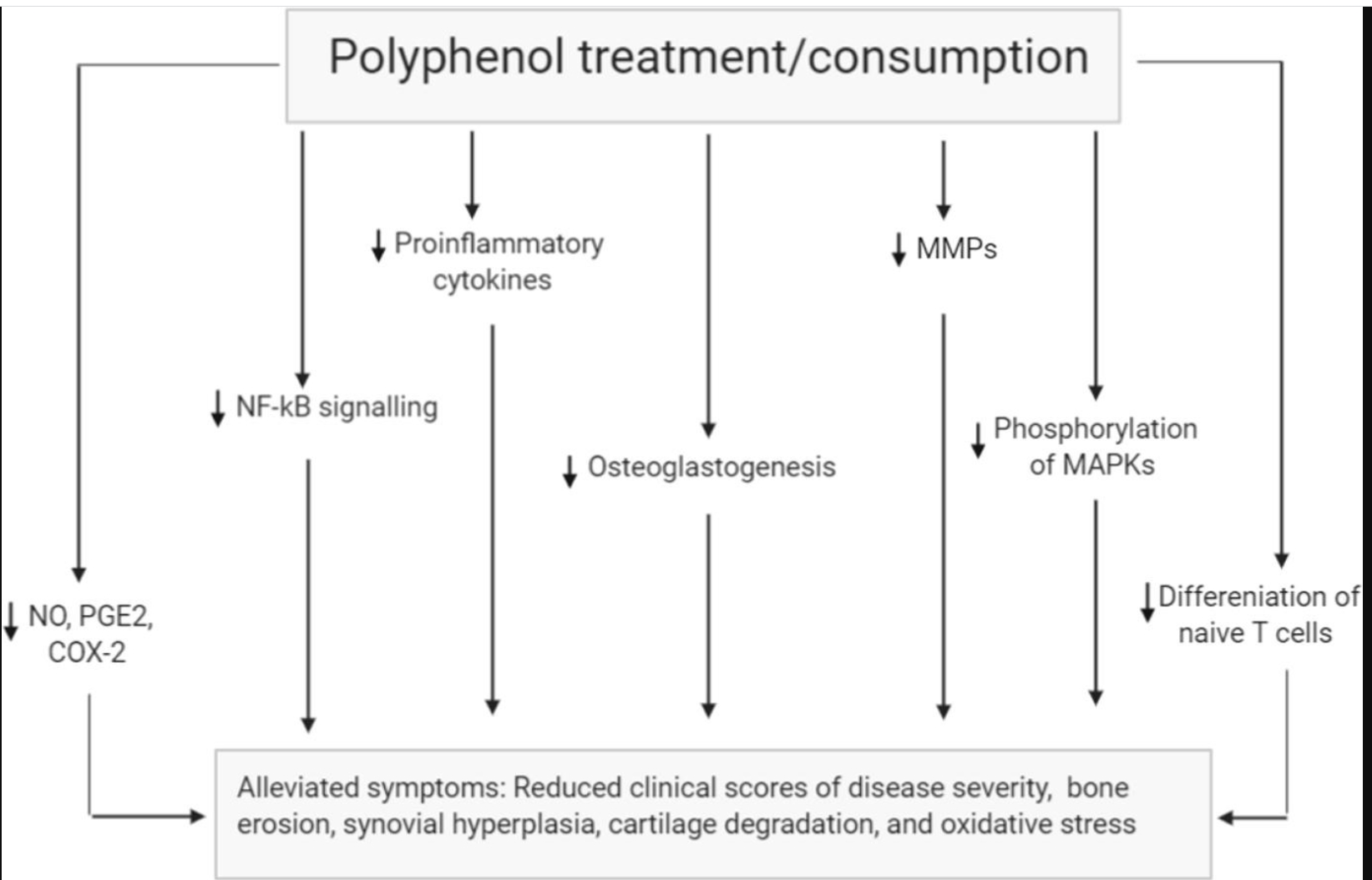Efficacy and mechanisms of dietary polyphenols in mitigating rheumatoid arthritis
Lindsey M.Christman Journal of Functional Foods Volume 71, August 2020, 104003
Highlights
• Rheumatoid arthritis affects about 1% of the world’s population but has no medical cure.
• Dietary polyphenols exhibit a beneficial effect on the symptoms of RA.
• Polyphenols have been found to inhibit signaling pathways involved in inflammation.
Rheumatoid arthritis is an autoimmune disease characterized by chronic inflammation in the joints, leukocyte infiltration in the synovium, and joint and bone degradation. It affects about 1% of the world’s population, mostly women and elderly, but has no medical cure. Patients are recommended to manage their conditions through lifestyle changes and medications. Mounting evidence from clinical trials, animal models, and cell culture studies suggested that dietary polyphenols have a beneficial effect on the development and symptoms of rheumatoid arthritis. In RA patients, phenolic compounds have been found to reduce early morning stiffness, morning pain, and after activity pain, and decrease plasma levels of inflammatory mediators. In rodents with RA, polyphenols were shown to delay the onset, alleviate the symptoms, and reduce inflammation.
The major mechanisms of RA prevention and symptom alleviation were the reduction of inflammatory mediators and inhibition of specific signaling pathways involved in the inflammatory response in rheumatoid arthritis. Future research is needed to assess the bioactivity of phase-2 and microbial metabolites of polyphenols and explore how interactions between polyphenols and gut microbiome affect RA development.














